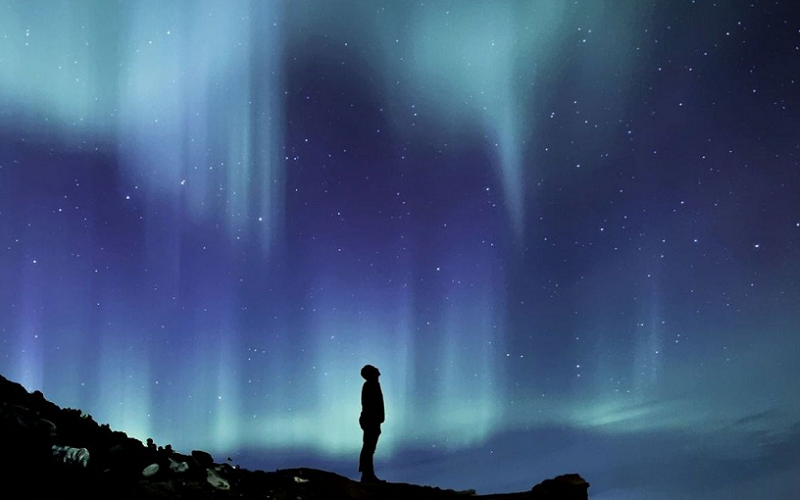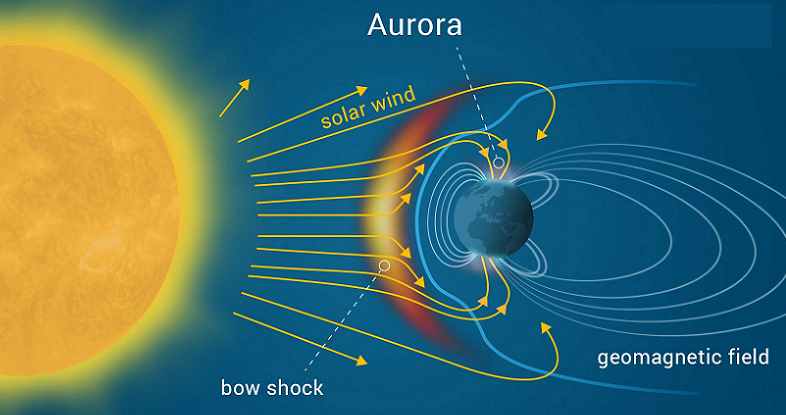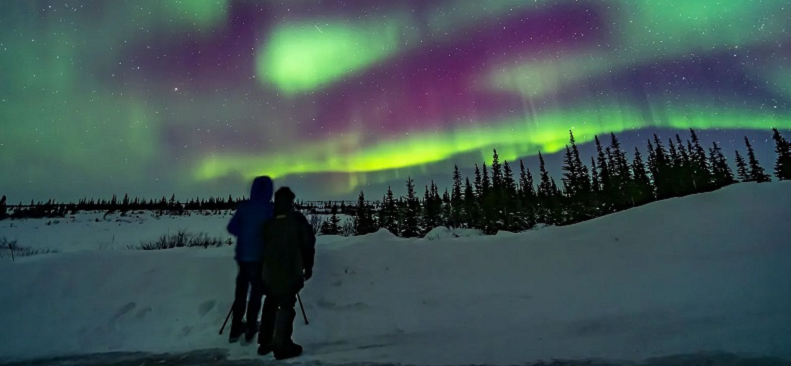
The shimmering curtains of the Aurora Borealis, or Northern Lights, have enchanted observers for centuries, painting the night sky with their ethereal beauty. But, have you ever wondered about the potential effects of this celestial phenomenon on your mood and cognitive function? Here we explore the human brain’s extraordinary sensitivity to environmental stimuli, especially light and color, providing the basis for our main exploration of how the Aurora Borealis might influence our moods, potentially inducing feelings of serenity, wonder, and inspiration.
Contents
Understanding the Aurora Borealis
Before digging into the specifics of how the Aurora Borealis might affect our mental states, it’s crucial to grasp what this mesmerizing phenomenon is and how it comes to life in our night skies.
Formation and Occurrence of the Aurora Borealis
The Aurora Borealis, also known as the Northern Lights, is a natural light display that occurs in the Earth’s high-latitude regions around the Arctic and Antarctic. This stunning spectacle is the result of collisions between the Earth’s atmosphere and charged particles from the sun. When the sun ejects a cloud of gas (a phenomenon known as a coronal mass ejection), these particles can travel towards Earth.
Upon reaching our planet, they interact with the Earth’s magnetic field, causing some particles to enter the Earth’s atmosphere. As these particles collide with gases in the atmosphere, energy is released in the form of beautiful, glowing lights – the auroras.
Regions Where the Aurora Borealis is Mostly Observed
These dazzling displays are primarily seen in the Polar Regions, within a band known as the ‘auroral zone.’ This zone is typically between 10° and 20° from the magnetic poles. As a result, some of the best places to witness this celestial ballet are Alaska, Canada, Iceland, Greenland, Norway, Sweden, and Finland. However, during periods of particularly high solar activity, the auroras can be seen much further from the poles, dazzling observers in lower latitudes with their brilliance.
Cultural Significance and Interpretations of the Aurora Borealis
The Aurora Borealis has held a special place in the folklore and mythologies of the cultures that experience them. For example, the Sami people of Northern Scandinavia believed that the lights were the energies of the departed. In contrast, the Inuit of Alaska saw them as the spirits of the animals they hunted. The varying interpretations of the auroras underscore their profound influence on human consciousness, imagination, and perhaps our emotional and cognitive states [1].

The Human Brain and Its Sensitivity to Environmental Stimuli
Understanding the possible impact of the Aurora Borealis on our mood and cognition requires a grasp of how our brains react to environmental stimuli. Our brains are inherently responsive to the world around us, continuously processing a wealth of sensory information and accordingly shaping our thoughts, emotions, and behaviors.
Brief Overview of Human Brain’s Response to External Stimuli
Our brains have evolved to be highly sensitive and responsive to our environment, ensuring our survival and well-being. When we encounter external stimuli, such as sights, sounds, or smells, these are first processed by our sensory organs. These signals are then transmitted to our brains, which interprets the information and initiates appropriate responses. For example, a sight of danger initiates the release of stress hormones, preparing us for a ‘fight or flight’ response, while a calming scene, like a tranquil beach, may promote relaxation, reducing stress hormones and fostering positive emotional states.
How Light Influences Mood and Cognitive Function
One crucial environmental stimulus that has a profound influence on our brains is light. Research has demonstrated that light, particularly its intensity and color, can affect our mood, cognitive function, and overall health. For instance, exposure to sunlight has been found to stimulate the production of serotonin, a neurotransmitter that boosts mood and promotes a sense of well-being. Conversely, lack of sunlight, as experienced during the winter months, can lead to Seasonal Affective Disorder (SAD), a type of depression associated with reduced exposure to sunlight.
In terms of cognition, studies have suggested that exposure to blue light can enhance alertness, memory, and cognitive performance. Interestingly, these effects of light extend beyond the purely physiological and can impact our psychological state too. For example, the warm glow of a sunset often evokes feelings of tranquility and peace, while a harsh, bright light can induce feelings of discomfort and stress [2].
The Role of Colors in Affecting Human Emotion and Thought Processes
Beyond light intensity, the color of light can also shape our mood and cognition. Color psychology, a subfield of psychology, explores how different colors influence our thoughts, emotions, and behaviors. For instance, the color blue is often associated with calmness and creativity, while green is tied to tranquility and balance. As such, the vibrant, multi-colored display of the Aurora Borealis offers a fascinating stimulus to consider in the context of mood and cognitive impact [3].

The Aurora Borealis and Mood
Having understood the profound effects of light and color on our brains, we are now equipped to get into the heart of our discussion: the potential influence of the Aurora Borealis on our mood. The vibrant hues and ethereal light of this celestial spectacle certainly make for an awe-inspiring sight, but what might this mean for our emotional state?
The Psychological Impact of Viewing the Aurora Borealis
Viewing natural wonders, such as the Aurora Borealis, often elicits feelings of awe and wonder. Psychologists define awe as an emotional response to perceptually vast stimuli that transcend our current understanding or frame of reference. Experiencing awe can shift our focus from our personal day-to-day concerns to larger, more universal considerations, thereby promoting feelings of connectedness, contentment, and tranquility. In essence, the awe-inspiring nature of the Northern Lights may lead to a more positive, uplifted mood [4].
Personal Experiences and Anecdotal Evidence
Anecdotal evidence and personal narratives often highlight the uplifting effects of observing the Aurora Borealis. Many individuals describe the experience as mesmerizing, deeply calming, or even spiritual, often noting a shift in their mood towards a state of serenity or exhilaration. Such personal experiences, while not scientifically quantifiable, add a rich, human dimension to our exploration of the auroras’ psychological impact.
Scientific Research on the Aurora Borealis’ Effects on Mood
While scientific research specifically focusing on the mood-altering effects of the Aurora Borealis is currently limited, a few studies provide intriguing insights. Research on the benefits of nature exposure, for instance, has consistently linked time spent in natural environments with improved mood and reduced stress levels. Given that viewing the auroras typically occurs in relatively untouched, natural settings, it’s plausible that at least part of their mood-enhancing effect is tied to this ‘nature exposure’ factor [5].
Analysis of the Findings and Theories
In analyzing the evidence and theories at hand, it seems plausible that viewing the Aurora Borealis could foster a more positive mood. The awe-inspiring nature of the auroras, the sense of connection with nature, and the peaceful settings in which they are viewed likely contribute to this effect.
The Aurora Borealis and Cognitive Function
While understanding the mood-enhancing effects of the Aurora Borealis is fascinating, the potential impact of this natural spectacle on cognitive functions opens a new realm of possibilities. Could the swirling colors of the Northern Lights somehow stimulate our minds, enhancing creativity, problem-solving abilities, or other cognitive faculties?
Potential Influence of the Aurora Borealis on Cognitive Abilities
At a basic level, cognitive function refers to the mental processes that allow us to carry out any task. It includes aspects like memory, attention, understanding, problem-solving, and creativity. As we’ve previously discussed, environmental stimuli can influence cognitive function. In the case of the Aurora Borealis, one might hypothesize that the awe-inspiring experience of watching the lights might stimulate creative thinking, encourage fresh perspectives, or even enhance problem-solving abilities.
Case Studies and Empirical Research
Direct research on the Northern Lights’ effects on cognition is sparse. However, some related studies offer clues. For instance, research on the effects of color on cognitive performance found that exposure to blue and green can stimulate creativity and enhance performance on tasks that require generating new ideas. As the Aurora Borealis often showcases a dazzling array of blues and greens, it might serve as a powerful stimulus for creative thinking [6].
Moreover, studies on the ‘awe’ experience suggest that feeling awe can expand one’s perception of time, enhance life satisfaction, and even increase critical and exploratory thinking. Thus, the awe elicited by the Northern Lights could potentially stimulate cognitive function in these ways.
Review of Relevant Scientific Theories
Reviewing the available scientific theories, it’s plausible to speculate a link between viewing the Aurora Borealis and enhanced cognitive function. Theories of environmental psychology suggest that novel, stimulating environments can enhance cognitive function. Furthermore, the aforementioned studies on color psychology and the impact of awe on cognition lend further credibility to this notion.
Analysis of the Findings
In light of the available evidence and theories, there’s a compelling case to be made for the potential cognitive benefits of watching the Aurora Borealis. It seems that the natural spectacle could offer a potent combination of awe-inspiring experience, exposure to stimulating colors, and an immersive, serene environment, all of which could contribute to enhancing various aspects of cognitive function.
References
[1] Effects of Daytime Electric Light Exposure on Human Alertness and Higher Cognitive Functions
[2] How Does Light Exposure Affect Memory?
[3] Northern Lights
[4] Scientists Prove Human Brain Can Detect Earth’s Magnetic Field
[5] The Effects of Geomagnetic Activity on Human Behaviour
[6] Auroras are dangerous for people prone to mental illness

